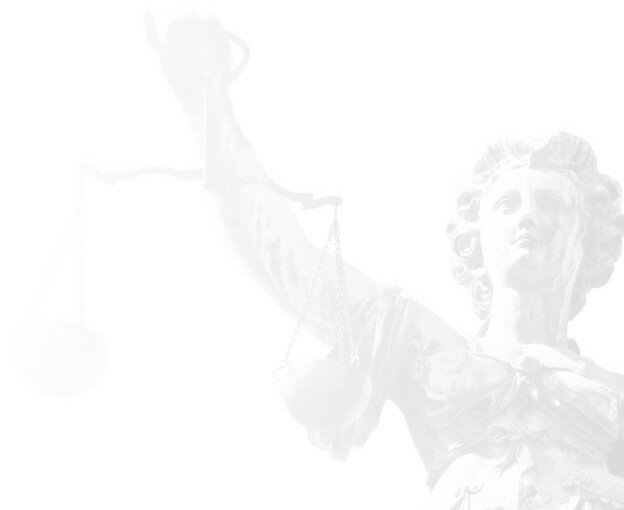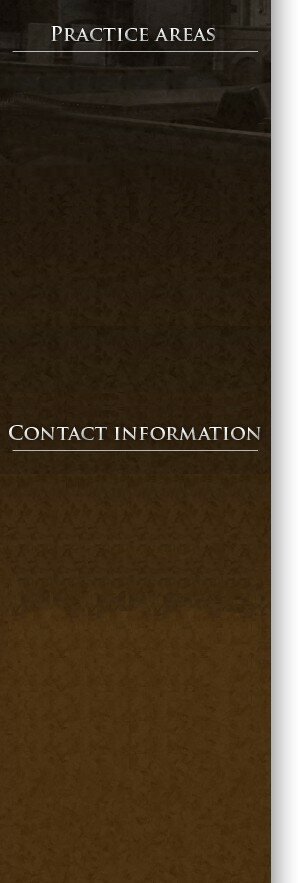
Bankruptcy & Foreclosure
Make a New Beginning
Are you getting harassing phone calls from creditors about debts you can't afford to pay? Are your wages being garnished? Are you being threatened with lawsuits, repossession and/or foreclosure?
At the Steele Law Firm, we understand that these situations are stressful. If you are looking for an opportunity to make a fresh start and put yourself on a firm financial footing, bankruptcy may be the best option.
We are a debt relief agency. The Steele Law Firm is admitted to represent clients in the Northern, Southern and Central Districts of Illinois Federal Courts for consumer bankruptcy.
Contact us to schedule a FREE initial consultation and discuss all of your debt relief options, including Chapter 7 and Chapter 13 bankruptcy, with a skilled Illinois bankruptcy attorney.
What is Bankruptcy?
Bankruptcy is a federal court process designed to help consumers and businesses eliminate their debts or repay them under the protection of the bankruptcy court. Bankruptcies can be classified as either "liquidations" or "reorganizations."
Chapter 7 bankruptcy is the liquidation variety. If you own property that isn't exempt under your state's laws, it may be taken and sold ("liquidated") to pay back some of your debt.
Chapter 13 bankruptcy is the most common type of "reorganization" bankruptcy for consumers. You get to keep all of your property, but you must make monthly payments over three to five years to repay all or some of your debt.
Chapter 7 Bankruptcy: Starting Over, Free From Debt
Chapter 7 bankruptcy can be filed by individuals (or “consumers") or businesses. A Chapter 7 bankruptcy typically lasts three to six months.
Property liquidation. In Chapter 7 bankruptcy, some of your property may be sold to pay down your debt. In return, most or all of your unsecured debts will be erased. You get to keep any property that is classified as exempt under the state or federal laws available to you (such as your clothes, car, and household furnishings). Many debtors who file for Chapter 7 bankruptcy are pleased to learn that all of their property is exempt.
Secured debt. If you owe money on a secured debt (i.e., a car loan for which the car is pledged as a guarantee of payment), you have a choice of allowing the creditor to repossess the property; continuing your payments on the property under the contract (if the lender agrees); or paying the creditor a lump sum amount equal to the current replacement value of the property. Some types of secured debts can be eliminated in Chapter 7 bankruptcy.
How Chapter 7 Bankruptcy Can Help
It may be that you’ll have to give up your home no matter what. In that case, filing for Chapter 7 bankruptcy will at least stall the sale and give you two or three more months to work things out with your lender. It will also help you save up some money during the process and cancel debt secured by your home.
In addition, thanks to a new law, you no longer face tax liability for losses your mortgage or home-improvement lender incurs as a result of your default, whether you file for bankruptcy or not. This new law applies to the 2007 tax year and the following two years. However, the new tax law doesn’t shield you from tax liability for losses the lender incurs after the foreclosure sale if:
• the loan is not a mortgage or was not used for home improvements (such as a home equity loan used to pay for a car or vacation), or
• the mortgage or home equity loan is secured by property other than your principal residence (for example, a vacation home or rental property).
This is where Chapter 7 bankruptcy helps. It will exempt you from tax liability on losses the lender incurs if you default on these other loans.
Chapter 13 Bankruptcy: Paying What You Can Manage
Chapter 13 bankruptcy is also known as "wage earner" bankruptcy because, in order to file for Chapter 13, you must have a reliable source of income that you can use to repay some portion of your debt.
Repayment. When you file for Chapter 13 bankruptcy, you must propose a repayment plan that details how you are going to pay back your debts over the next three to five years. The minimum amount you'll have to repay depends on how much you earn, how much you owe, and how much your unsecured creditors would have received if you'd filed for Chapter 7 bankruptcy.
Debt limits. Your debts must be within limits set by the federal government: Currently, you may not have more than $1,010, 650 in secured debt and $336,900 in unsecured debt.
Secured debts. If you have secured debts, Chapter 13 gives you an option to make up missed payments to avoid repossession or foreclosure. You can include these past due amounts in your repayment plan and make them up over time.
If you want to stay in your home, but you’re behind on your mortgage payments with no feasible way to get current, the only way to keep your home is to file a Chapter 13 bankruptcy.
How it works: Chapter 13 lets you pay off the “arrearage” (late, unpaid payments) over the length of a repayment plan you propose (usually three to five years). But you’ll need enough income to at least meet your current mortgage payment at the same time you’re paying off the arrearage. Assuming you make all the required payments up to the end of the repayment plan, you’ll avoid foreclosure and keep your home.
2nd and 3rd mortgage payments. Chapter 13 may also help you eliminate the payments on your second or third mortgage. That’s because, if your first mortgage is secured by the entire value of your home (which is possible if the home has dropped in value), you may no longer have any equity with which to secure the later mortgages. That allows the Chapter 13 court to “strip off” the second and third mortgages and recategorize them as unsecured debt, which, under Chapter 13, takes last priority and often does not have to be paid back at all.
Bankruptcy’s Effect on Your Credit Score
Both bankruptcy and foreclosure will damage your credit score. However, sometimes bankruptcy is the preferable option when trying to rebuild credit. Here’s why:
A foreclosure will damage your credit score for many years, will not get rid of your other debt, and is particularly harmful if you are house shopping.
In contrast, discharging your debts in bankruptcy will harm your credit score, but can help you rebuild your score quicker than after a foreclosure. This is because bankruptcy will leave you solvent and debt-free, and therefore able to start rebuilding good credit sooner.
Contacting an Illinois Bankruptcy Attorney
If you are dealing with an Illinois bankruptcy matter, you need the advice and assistance of a skilled, experienced bankruptcy attorney to help you, your family, and to protect all of your legal rights.
Contact us or give us a call today at (312) 893-5888 or 1-800-DIVORCE (in Northern Illinois) to learn more about how we can help you or to set up a FREE consultation.
We Can Assist You With:
• Matrimonial Law
• Family Law
• Divorce
• Domestic Relations
• Dissolution of Marriage and Legal Separation
• Litigation in Trial Courts
• Negotiated Settlements
• Alternative Dispute Resolution, such as Collaborative Law and Mediation
• Appeals to Reviewing Courts
• Financial Discovery and Analysis
• Property Division
• Retirement Benefits
• Qualified Domestic Relations Orders (QDROs)
• Paternity
• Adoption
• Child Custody, including Joint Custody and Sole Custody
• Child Visitation
• Child Support
• Child Abductions
• Maintenance, formerly known as Alimony
• Spousal Support
• Marital Settlement Agreements
• Premarital Agreements
• Postnuptial Agreements
• Annulments
• Domestic Violence
• Post-Decree and Post-Judgment Issues and Modifications
• Restraining Orders
• Separation Agreements
Steele Law Home | Attorney Profile | Steele Law Firm Overview | Practice Areas | Divorce and Family Law | Resources | Contact Us


DISCLAIMER: This web site does not constitute an attorney/client relationship and this website does not give legal advice
STEELE LAW FIRM, LLC
Phone: 312-893-5888
Toll-Free (in Northern Illinois):
1-800-DIVORCE
Office Locations:
Downtown Chicago
161 N Clark St., Suite 3200
Chicago, IL 60601
Naperville
2135 CityGate Ln, Suite 300
Naperville, IL 60563

